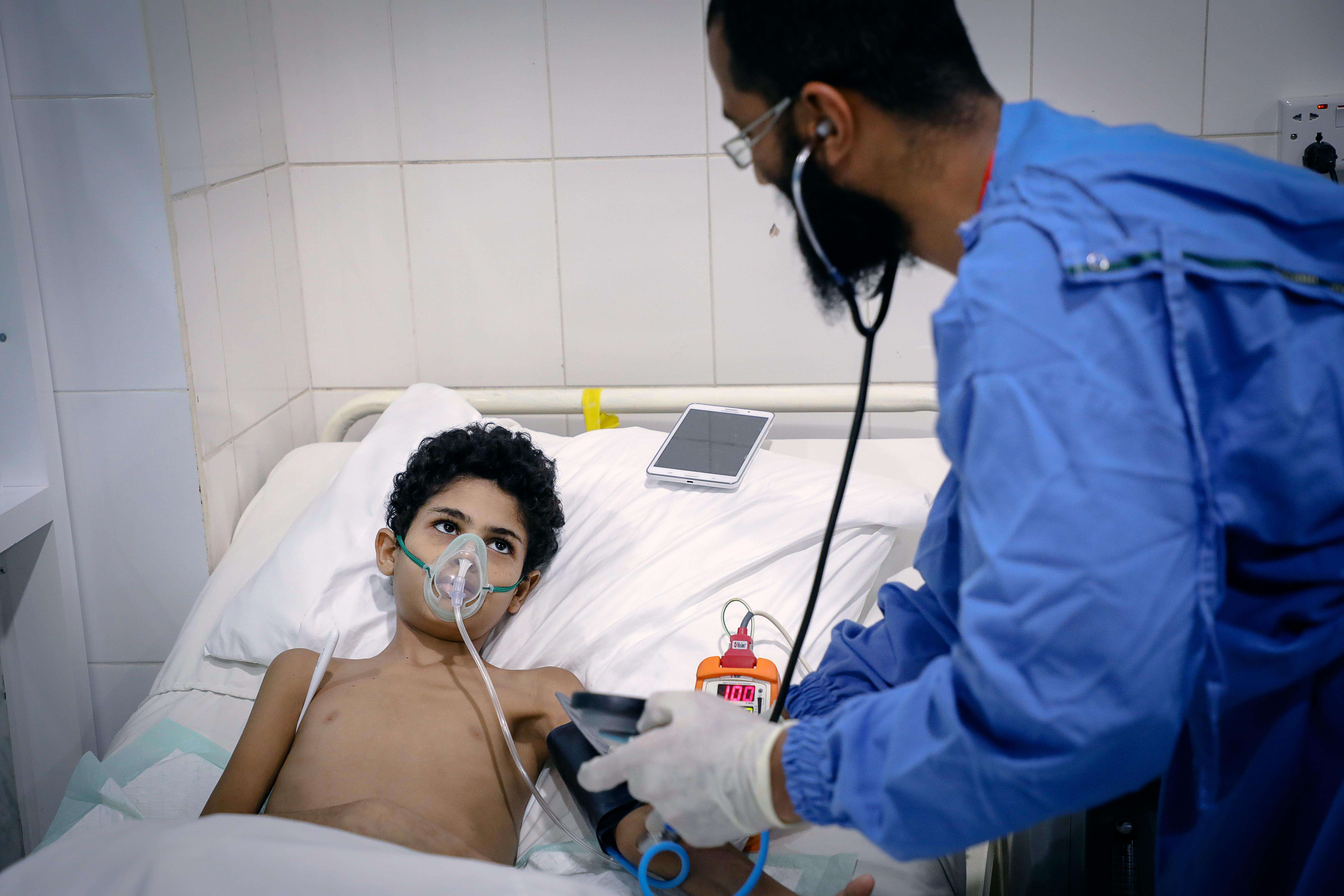Doctors Without Borders/Médecins Sans Frontières (MSF) head of mission Djoen Besselink recently returned from Yemen, where he witnessed how the country’s pervasive conflict has affected nearly every aspect of Yemeni life. Here he describes the situation.
Even before the war, Yemen was one of the poorest countries in the Middle East. Now the war is everywhere, affecting every aspect of people’s lives. Cities and villages have been destroyed. Many people haven’t been paid for the last year and a half. We see a lot of malnutrition and food insecurity because it’s not just about the availability of food, it’s about the money. There are goods to buy in the markets, but people can’t afford them. It’s a disastrous situation.
You can’t speak of a normal life in Yemen. People don’t have time to recover from one crisis before the next ones hit them. It’s crisis on top of crisis. You have the armed conflict; the economic situation, where health workers haven’t been paid; you have outbreaks of cholera and diphtheria; and you have the blockade preventing vital supplies from entering the country. Everything is related and comes on top of the previous problems, but nothing is ever solved. And this has horrible consequences for the people. Yemenis are trapped in this many-layered crisis.
A Crippled Health System
It’s all related. Health workers are not paid, so they flee the country or stop working, and the health system, already crippled by a lack of supplies and stock, collapses. Because their salaries have been stopped, people have no money. So they can’t pay for private care and have to go to the free services, like those provided by MSF.
But then the free clinics are overwhelmed and can’t respond to the massive needs. For example, when I arrived in the country, an MSF maternity hospital would have 200 deliveries per month. But one month we had 1,000 [deliveries], with some people walking nine hours to reach us. But the clinic was only built to deliver 500 babies a month. So some days we were forced to close the doors because we had run out of space.
Deadly Outbreaks
The diphtheria and cholera outbreaks are also a consequence of this. If you have a strong health system, then when cases of cholera or diphtheria appear you can isolate them and prevent the diseases from spreading. Cholera is endemic in Yemen, which means it comes back every few years. But in its current state the health system couldn’t absorb the cases, so MSF had to set up seven cholera treatment centers. We treated over 100,000 cases last year.
In Europe, when you are a child you get vaccinated against diphtheria, so the disease has been eradicated. But in Yemen, with the health system falling apart, people are not getting vaccinated and they get infected.
Addressing Massive Needs
Yemen is one of the largest MSF projects in the world. But that, of course, is not a good sign. It means the needs are very big. We have a huge impact in Yemen simply because we are the only organization providing medical care in most of areas where we work. But sometimes the magnitude of the need is too great and we have to make difficult choices. For me, that’s the biggest challenge: the vastness of the needs.
The situation was very difficult when I arrived in Yemen and it still is. It’s a combination of a lack of access to the people in need and increasing medical needs, as well as a lack of other organizations responding. As MSF, we are not there to find a political solution or end the conflict. We provide medical care.
In the last two years we’ve treated a lot of patients, and the numbers are not decreasing. Based on our experience, the conflict is not declining either. We saw massive spikes in violence in different parts of the country. We are working less than a kilometer from the front line in some areas. Four of our facilities have been hit by airstrikes—one hit close to our medical facility last December and destroyed part of the emergency room. We had to stay in the basement for two weeks in November 2017 when fighting escalated in Sanaa.
Untold Stories
The impact on the population is the side of the story that is missing from most media coverage. They talk about organizations leaving the country and the conflict, but everything has an impact on Yemenis, and they don’t explain that. They don’t explain that when people are not paid, they can’t get medicines or vaccines. The blockade of Yemen’s ports has increased prices and that has caused a lack of both food and water, which affects hygiene conditions. Everything seems to be about politics. But what does it all mean for normal people?
People survive because they have no other choice. They can’t leave. They are forced to live in these conditions. People just try to get to work or to the market to get food, and not get hurt along the way.
People are selling their cars, their jewelry to get the money they need to survive . . . But you can only sell it once, right? There is an informal social safety net, where people help each other. But living a good quality life is very difficult.
The same is true for MSF’s Yemeni staff. They are constantly afraid of what could happen to them or to their families at home while they are working. People are constantly scared because the fighting can start any moment. I once asked a colleague how they deal with the conflict. They just answered: “We duck our heads and continue. There is no other option.” They are the people we support and our staff at the same time. Leaving the incredible Yemenis I worked with was not easy.




